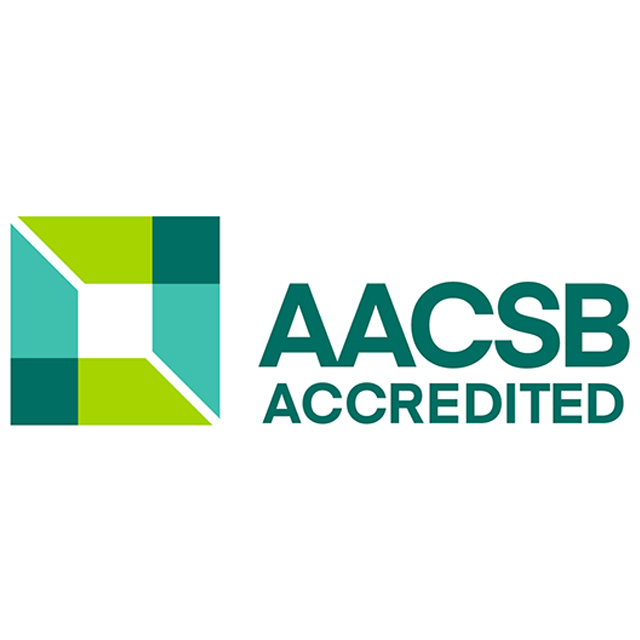Supply Chain Management
Duquesne University's Master of Science in Supply Chain Management (MS-SCM) equips you with expertise in forecasting, inventory and demand management, sourcing and distribution, global fulfillment and sustainability, making you a competitive candidate for high-level positions. The MS-SCM program is designed for working professionals who want to advance their careers, seize opportunities, and help organizations create a competitive advantage.
The MS-SCM format, which combines online learning with face-to-face sessions, provides flexibility and convenience, along with opportunities to collaborate on real projects and network with industry leaders. Every MS-SCM course is offered in both online and hybrid formats. Some online courses are asynchronous, while others will require students to join online at a set time..
The MS-SCM program is STEM-designated and AACSB International-accredited.
Program Information
The MS-SCM program equips you with expertise in forecasting, inventory and demand management, sourcing and distribution, global fulfillment and sustainability, making you a competitive candidate for high-level positions.
Program Type
Major
Degree
Master's
Duration
3-6 Semesters
Required Credit Hours
30
Modality
Online
Hybrid
Hyflex
More in this Program
Hear From Our Alumni
Rapid supply chain strategy and technology innovations require agile thinkers with
a deep understanding of sourcing, distribution, and demand management. Solving real-world
challenges, collaborating with faculty and business leaders, and highlighting ethical
considerations will prepare you for competitive roles in the global supply chain industry.
Our state-of-the-art facilities and resources equip you to:
We focus on the development of advanced knowledge and skills for successful
leadership in a variety of business functions such as, Forecasting, Aggregate Planning,
Materials Planning, Supply Management, Operations, Transportation/Distribution, and
Customer Service.
Information Systems are key to the development, growth and success of supply chains.
Duquesne focuses on information systems throughout the integrated curriculum. You
will use the most up-to-date technological systems in creative and analytical ways
to enhance the overall effectiveness and efficiency of any supply chain. This includes
advanced planning and scheduling, procurement management, and transportation and warehouse
management systems. Your MS-SCM studies should support your career commitments, so we've developed two
parallel part-time learning formats for completing your M.S. in Supply Chain Management
on a schedule that works with your professional responsibilities and allows you to
graduate in less than two years. With in-person evening courses every other week and asynchronous coursework on the
opposite week, the hybrid MS-SCM degree provides maximum flexibility and networking
opportunities to support your career. The program can be completed in just five semesters
and paves the way toward Six Sigma Green Belt Certification and APICS Certifications. Tailor your learning around your commitments with Duquesne's 100% online MS-SCM pathway.
This cohort-based program offers primarily synchronous sessions and experiential learning
for students worldwide. Network with global supply chain and demand management professionals
through synchronous virtual meetings in the experiential project class to build upon
your expertise.
The Master's in supply chain management at Duquesne University is set apart
by its STEM designation. In a highly competitive job market, STEM designated SCM degree
programs distinguish candidates with interdisciplinary technical and mathematical
skills, business acumen for solving complex business challenges and bold expertise
for navigating unknowns in the future of business.
Duquesne’s M.S. in Supply Chain Management is designed for working professionals who
want to advance their careers, seize opportunities, and help organizations to create
a competitive advantage. The Association to Advance Collegiate Schools of Business (AACSB) awarded Duquesne's
undergraduate and graduate Schools of Business its full accreditation. The AACSB accreditation
is recognized as a global mark of distinction. Less than 6 percent of the world's
more than 1,200 business schools have passed the rigorous review necessary to earn
the honor.
Thrive in an In-Demand Field
Our Focus
Duquesne Difference
Flexible Program
Hybrid In-Person and Online
100% Online
STEM-Designated Program
Contact Information
Jonah Jobin

Curriculum
Accreditation
Learning Outcomes
Learners will demonstrate working knowledge in the SCM business disciplines of forecasting,
aggregate planning, materials planning, supply management, operations, transportation
and distribution, and customer service that support organizational success.
SCM Analytical Solutions
Learners will demonstrate qualitative and quantitative skills to develop tactical
plans to enhance the role SCM plays in the success of the internal and external extended
corporate value chain.
SCM Leadership Skills
Learners will demonstrate the ability to lead with integrity as confident, well-rounded
supply chain industry professionals whose decision-making is guided by a strong ethical,
environmental, and social responsible framework.
SCM Strategy
Learners will demonstrate an understanding of the role SCM plays in the success of
the extended corporate value chain.







